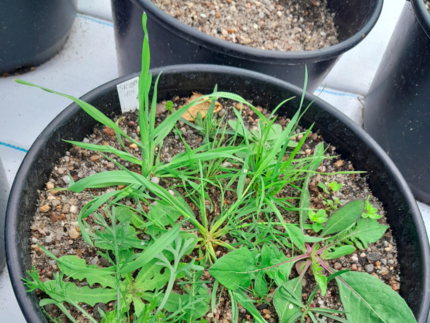GrassYear (DFG: 2025 – 2028)
Climate change is having a massive impact on plant communities, altering species composition and ecosystem services. In particular, increasing drought has been identified as a major threat to plant
biodiversity, which may be exacerbated in combination with other environmental changes such as eutrophication or land-use change. While recent empirical studies have focused on the effect of
drought intensity on plant communities, much less attention has been paid to its timing. Drought events can occur at different times within years, but can also vary between years. How plant species
respond to such variation is likely to depend on their functional traits, which include phenology and traits related to water acquisition and photosynthetic capacity. In addition, the timing of drought
events is expected to alter the dynamics of species interactions, such as competition, which will ultimately alter coexistence mechanisms and thus biodiversity.
The GrassYear project aims to investigate the short and long term consequences of drought variability in grassland communities. The first PhD candidate (Michelle Eckhardt) uses simulation models to investigate different specific timing, intensity and autocorrelations of drought stress, and the role of intra- and interspecific interactions in understanding and predicting community responses to different climate change scenarios. The second PhD candidate (Sarah Poldrack) investigates empirically the effect of the timing of drought events in combination with land-use changes. To this end a series of pot experiments as well as in-situ field experiments are conducted.
Funding: The project is funded by the German Research Foundation (DFG, project number 546687112)
People:
- Florian Jeltsch (PI)
- Kolja Bergholz (PI)
- Sarah Poldrack (PhD candidate)
- Michelle Eckhardt (PhD candidate)
- Isabel Merz (Master candidate, title: Influence of competition on functional traits of calcareous dry grassland perennials)

